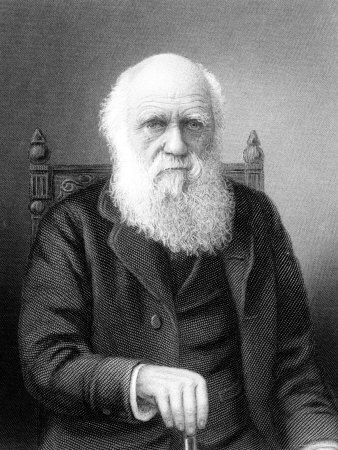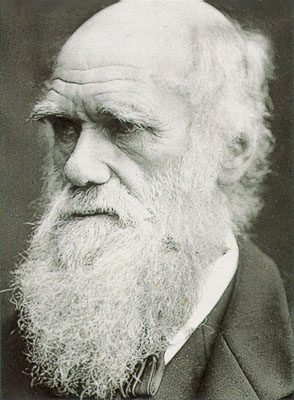
troubled with palpitations and pain about the heart," he wrote in his diary. In fact, he deliberately declined to obtain a doctor's opinion prior to his famous voyage on board the Beagle (where Darwin's theory of evolution was seeded) for fear of being told he should stay home. Sometimes, Darwin's symptoms led him to self-isolate from the rest of the world, but at other times, he was surprisingly resilient. "You will be a disgrace to yourself and all your family." Hey Robert Darwin, guess what, everyone remembers your kid, and no one remembers you. "You care for nothing but shooting, dogs and rat-catching," his father wrote in a not-very-fatherly letter to his son. Robert Darwin was horrified by his son's academic failures but even more so by the fact that Charles liked to collect beetles and study botany and geology, which seemed to him like the pastimes of a slacker or whatever the 19th-century version of a slacker was. After that, Darwin obtained a bachelor's degree from Cambridge in preparation for joining the clergy, but we all know how that worked out for him. He did indeed enter Edinburgh University with the intent to become a physician, but he abandoned his studies when he realized that a medical career wasn't super compatible with not being able to stand the sight of blood. But according to the New Statesman, Darwin only did the first of those things. The celebrations centred on February 2009, but built up to November 2009, which was the 150th anniversary of the publication of Darwin's famous work "On the Origin of Species by Means of Natural Selection".Charles Darwin's father was a successful physician who never doubted his son would go on to medical school and also become a successful physician.
Charles darwin series#
"Darwin200" is a national series of events that will celebrate the impact that Darwin's ideas about evolution, as well as his approach to the understanding of the natural world and his outstanding example as a scientist, continue to have on our lives. Darwin200ĭarwin’s 200th anniversary fell in February 2009. Huxley and Hooker defended Darwin, who faced much criticism as well as praise after publication. After the publication of the Origin of Species in 1859, Thomas H Huxeley, who had initially disagreed with Darwin's early evolutionary sketches, became a keen champion of his work. Two other naturalists who assisted Darwin during the two decades that he worked on the manuscript, were Sir Joseph Dalton Hooker FRS and Edward Forbes. Mr H C Watson, to whom I lie under deep obligation for assistance of all kinds Charles Robert Darwin The Origin of Species

Hewett Cottrell Watson, who studied natural history at Edinburgh was acknowledged several times in The Origin of Species. We now know that Darwin came up with his theory of evolution by natural selection soon after his return home from the Beagle voyage, but it was many years before he had accumulated enough evidence to publish his work.įour other men with Edinburgh University connections assisted Darwin before and after the publication of The Origin of Species.

On the voyage he observed and collected plants, animals, rocks and fossils. The Beagle and the theory of evolutionįour years after leaving Edinburgh, Darwin joined HMS Beagle as the ship's naturalist, for a round the world voyage under the command of Captain Robert Fitzroy. It was while at Edinburgh that Darwin wrote his first scientific paper, on bryozoans, which he presented to the student society. He spent time with Robert Grant, a marine biologist and sponge expert, and assisted Grant in his studies of the marine life of the coastline near Edinburgh.ĭarwin’s work with Grant is considered to have had an influence on his thinking. However, while at Edinburgh Darwin became a member of a student natural history group called the Plinian Society. He left after two years without graduating. Edinburgh had the reputation of providing the best medical education in Britain, but Darwin did not enjoy his studies. Darwin’s father and grandfather had both studied medicine.


 0 kommentar(er)
0 kommentar(er)
